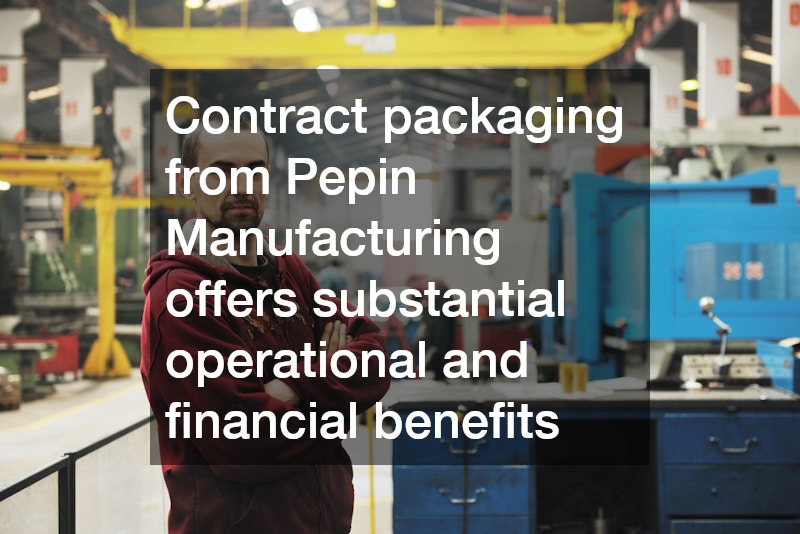

Signs Your Business Is Ready for Contract Packaging
In today’s competitive marketplace, the ability to adapt and streamline operations is crucial for business success. One such strategy that businesses are adopting to enhance efficiency and growth is contract packaging. By understanding the critical indicators of readiness, companies can leverage contract packaging to meet market demands and optimize their supply chain. This comprehensive article will guide you through the signs that your business is ready for this strategic transition.
What Is Contract Packaging?
Contract packaging, also known as co-packing, involves outsourcing the packaging functions of a product to a third-party service provider. This practice allows companies to focus on core operations while ensuring that their products are packaged efficiently and professionally. Contract packaging is significant in modern business as it helps manufacturers meet fluctuating market demands, adapt to changes in packaging technologies, and ensure compliance with industry standards.
The rise of contract packaging comes from the need for specialized expertise in packaging technology that many companies may not possess. Partnering with a contract packager means gaining access to this expertise and the latest packaging technologies without incurring the substantial costs of maintaining an in-house operation. Additionally, a contract packaging provider can offer valuable insights into market trends, helping businesses stay competitive.
With globalization and the rapid pace of innovation, businesses are increasingly seeing the value of contract packaging as a flexible solution to enhance productivity. By outsourcing packaging operations, companies can improve their market responsiveness, allowing them to scale production quickly according to market needs and priorities.
Benefits of Contract Packaging
One of the primary benefits of contract packaging is cost savings. Outsourcing packaging tasks can significantly reduce overhead costs, as it eliminates the need for investing in specialized equipment and hiring additional staff. The contract packaging service provider often benefits from economies of scale, which, in turn, pass financial savings onto the client.
Another advantage is the flexibility that contract packaging offers. Businesses can scale their packaging operations up or down based on seasonal demand or changes in customer preferences without significant investments in infrastructure or labor. This adaptability is particularly beneficial for companies that experience variations in product demand.
Contract packaging also provides scalability, an essential factor as businesses grow and evolve. Whether launching a new product line or expanding to new markets, contract packagers have the capability to handle increased volumes and complexities, thus supporting business growth without a hitch.
How to Know When Your Business is Ready?
Assessing Your Production Volume
Determining your company’s readiness for contract packaging starts with assessing your production volume. If your existing production levels are consistently high and require more resources than you currently have, it may be time to consider outsourcing. Regularly hitting maximum capacity is a clear indicator that your business could benefit from the expanded capabilities of a contract packaging partner.
Additionally, businesses experiencing growth spurts or planning to expand their product lines should evaluate the scalability of their current production capabilities. Contract packaging companies can offer the necessary infrastructure to accommodate these changes without the additional capital expenditure, making them invaluable for businesses anticipating rapid growth.
It’s also essential to consider whether the current production volume justifies an in-house packaging operation. For some businesses, maintaining such operations internally is not cost-effective, especially if the volume does not reach the threshold that warrants significant investment in packaging technology and labor.
Capacity and Efficiency Constraints
Bottlenecks and inefficiencies in the existing packaging process are signs that a business may benefit from contract packaging. If you’re witnessing frequent production delays, increased lead times, or quality control issues, it might be time to seek external expertise. Contract packaging companies have streamlined processes and technologies that can relieve these constraints.
Another indicator is the inability to meet customer demand promptly. If your business struggles with timely order fulfillment or maintaining quality during peak periods, a contract packaging provider can offer the necessary bandwidth and efficiency improvements to meet these demands without sacrificing quality or efficiency.
Moreover, as product lines diversify, maintaining packaging consistency and quality can become challenging. Contract packers are experienced in managing complex product portfolios, ensuring that all packaging adheres to your brand standards while optimizing production processes to reduce waste and improve time-to-market.
Conclusion
Contract packaging from Pepin Manufacturing offers substantial operational and financial benefits for businesses ready to transition from in-house packaging operations. By assessing production volumes, identifying process constraints, and understanding the financial implications, businesses can make informed decisions about leveraging contract packaging services. The right provider can enhance efficiency, scalability, and compliance, positioning a business for growth and market leadership. As you evaluate your company’s readiness for this strategic move, consider the outlined factors to ensure a successful transition.



